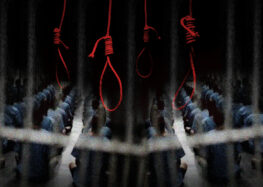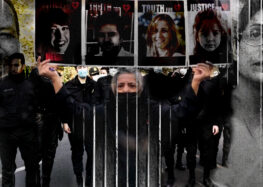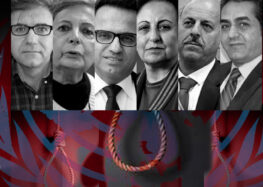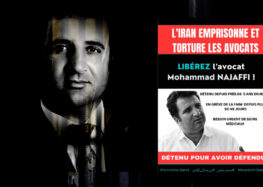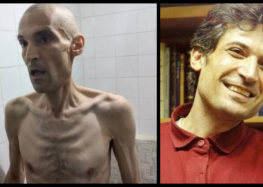More Defense Attorneys Prosecuted in Iran for Defending Human Rights
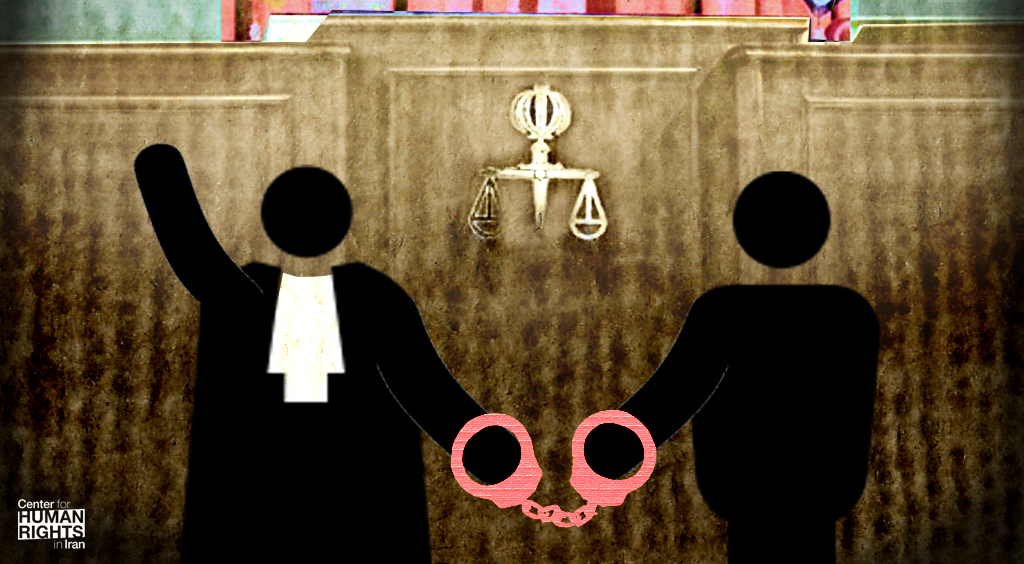 The state policy of persecuting and imprisoning independent defense lawyers under false charges for doing their jobs is continuing under Iranian Judiciary Chief Ebrahim Raisi, who is running for the presidency in June 2021.
The state policy of persecuting and imprisoning independent defense lawyers under false charges for doing their jobs is continuing under Iranian Judiciary Chief Ebrahim Raisi, who is running for the presidency in June 2021.
In addition to at least four defense attorneys who are currently imprisoned in the country, two others were recently prosecuted: Farzaneh Zilabi, a lawyer representing workers in their dispute with a sugar company in southwest Iran, and Mohammad Hadi Erfanian-Kaseb, who represented a political prisoner that was stabbed to death.
“The court can accept or reject arguments presented by defense lawyers, but it cannot put pressure on them or silence them in this manner,” Zilabi’s lawyer Nasser Zarafshan said in an interview with the Center for Human Rights in Iran (CHRI) on May 27, 2021.
“When a lawyer comes under threat for carrying out her professional duties and loses her job under Paragraph C of Article 247, that’s a clear case of censorship,” he added.
“If invoking that section of the law becomes the norm in the judiciary… lawyers will no longer have the freedom to defend their clients or any protection against threats to their profession,” he said.
Zilabi’s lawyer continued: “If this precedent becomes the norm, Article 247 will hang like a knife over lawyers’ heads, especially in these kinds of cases, and they will not be able to fully and freely defend their clients for fear of losing their livelihood.”
Zarafshan stressed that Zilabi’s case could affect the legal profession as a whole and called on the Iranian Bar Association to defend its members against the judiciary’s resolve to crush defense attorneys’ independence.
Lawyers Suspended for Defending Their Clients
On May 15, 2021, Zilabi was suspended from practicing law for six months while Erfanian-Kaseb was sentenced to 95 days in prison earlier that month.
Other lawyers currently serving prison sentences include Nasrin Sotoudeh, Mohammad Najafi, Amirsalar Davoudi, and Giti Pourfazel.
For strongly defending activists and dissidents, they were convicted of charges ranging from “propaganda against the state” to “acting against national security.”
As part of the ongoing degradation of the independence of the Iranian Bar Association (IBA), a billsigned by several members of Parliament was also submitted to the floor in mid-May “to investigate bodies that issue licenses to practice law.”
Persecution of Independent Lawyers and Decimation of Iranian Bar Association
A week after the controversial sale of the formerly state-owned Haft Tappeh sugar plant near the city of Shush to the private sector was annulled and the company was taken over by the state on May 8, 2021, Zilabi was taken to court for representing the company’s workers.
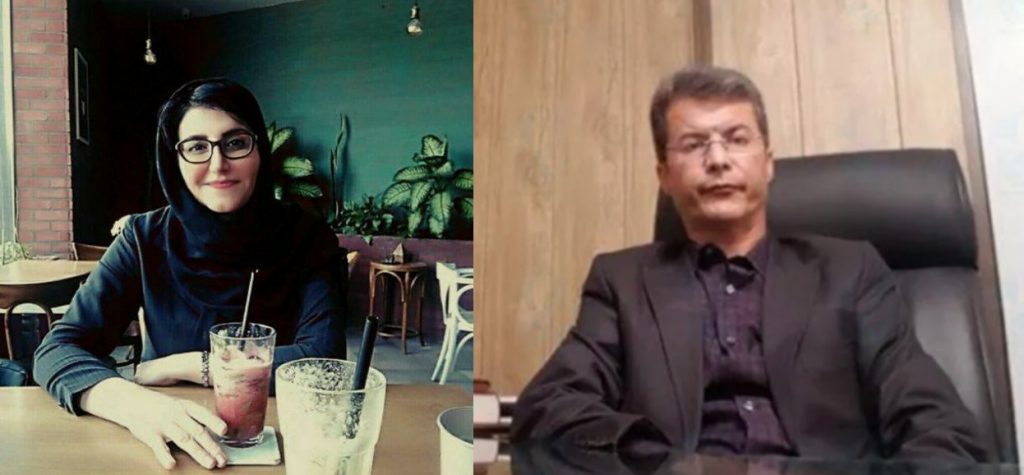
Farzaneh Zilabi and Mohammad Hadi Erfanian-Kaseb are the latest defense attorneys to be prosecuted for defending human rights in Iran.
She was summoned to Branch 12 of the Magistrate in Ahvaz, charged with “assembly and collusion against national security,” “propaganda against the state,” “spreading falsehoods” and “membership in an anti-state group,” and suspended from practicing law for six months.
The ruling came as workers celebrated their victory against Haft Tappeh’s now-expelled private buyers.
Since 2018, workers have waged rallies and strikes over frequent delays in wage payments and the reduction of health and retirement benefits, and strongly opposed the sale of the company to private owners.
Zilabi’s strong defense of several people who were prosecuted for participating in and reporting on the protests made her a target of the judiciary and security establishment.
“The suspension of Zilabi’s license was based on Article 247 of the Code of Criminal Procedure, which grants investigators the authority to issue certain judicial orders lasting a period of time in proportion to the crime committed,” Zarafshan told CHRI.
Paragraph C of Article 247 states that “professions may be prohibited if related to the crime that has been committed.”
“To refer to this particular paragraph in the law requires the presupposition that Zilabi’s legal representation was somehow connected to a crime,” Zarafshan said.
Zarafshan explained that Zilabi has been suspended from practicing law even though she has not been convicted of committing a crime.
“When a case is being investigated, it means no criminal act has been determined yet,” he said. “Suspects are only accused at this stage; we cannot assume they committed a crime.”
Zilabi has also been prevented from examining her case files.
“Given that access to the contents of her case has been prohibited, my client is unaware of the details of the charges,” he said and warned that the manner of Zilabi’s suspension was a dangerous precedent.
Zarafshan, himself a former prisoner of conscience who was behind bars for five years in the 1990s, continued: “Aside from the legal aspect of this case, it’s obvious that there are political and economic motives at play as well. Those who give away national treasures in the name of privatization are very powerful and influential people who are ruling the country; naturally, they aren’t going to be idle.”
“Ms. Zilabi is being punished for defending Haft Tappeh workers,” he said. “There are no accusations of financial impropriety against her, so therefore it is clear they are taking revenge on my client.”
On May 19, 2021, a group of 366 lawyers signed a joint statement condemning Zilabi’s suspension:
“No authority has the right to impede lawyers in carrying out their duty to defend their clients…What is certain is that suspending lawyers is exclusively within the jurisdiction of the Bar Association’s disciplinary tribunal and stepping into this arena and issuing such a harsh punishment that prevents Zilabi from earning a living is a strange, unlawful and unfair precedent.”
As for Erfanian-Kaseb, in early May 2021 he was sentenced to 95 days in prison by Branch 29 of the Revolutionary Court in Tehran on the charge of “propaganda against the state,” based on nothing more than interviews with media outlets about the stabbing and ultimate death of political prisoner Alireza Shirmohammadali in the Greater Tehran Central Penitentiary in 2019.
Decimation of the Iranian Bar Association
In addition to imprisoning and impeding independent lawyers from doing their jobs, new laws and regulations are being implemented to further degrade the autonomy of the Iranian Bar Association.
Iran’s ruling religious establishment’s push against the independence of the legal defense profession began with the formation of the Judiciary’s Center for the Supervision of Lawyers, Experts, Family Counselors, operating in parallel with the IBA, in 2000.
Then in 2015, Article 48 of the Code of Criminal Procedures was amended to force suspects in national security cases to choose lawyers from a list approved by the judiciary chief, excluding all other lawyers.
In October 2020 the General Office for the Supervision of Lawyers was created by the judiciary and in May 2021 the body introduced a bill aimed at granting the judiciary the power to investigate the process of issuing law licenses.
Read this article in Persian.

